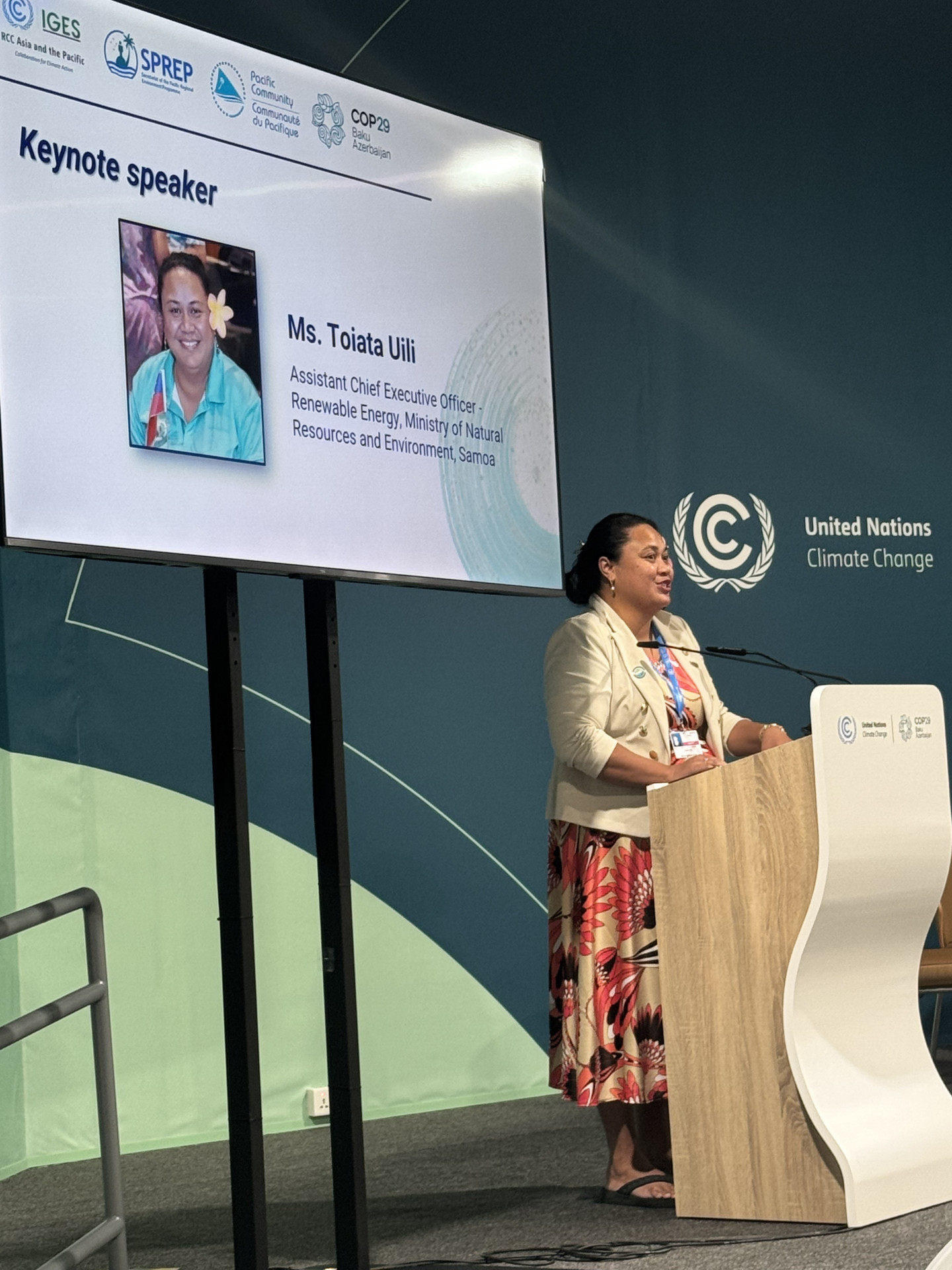Background:
The side event will build the dialogue on mitigation ambition in Small Island Developing States (SIDS). 1.5 to Stay Alive is the motto advocated for by SIDS at every COP since Paris to drive global mitigation ambition. SIDS, while being negligible emitters, seek to do their part to demonstrate raised ambition to inspire global action and maintain their strong ethical voice as the world’s conscience at negotiations.
This event will explore what mitigation ambition means in the SIDS and how this ambition can be driven further, examining the transformative actions already being undertaken on the ground and identifying potential replication and opportunities for the future. The event will also examine how greater climate mitigation ambition is possible in the SIDS with a suitable policy mix across sectors, which can further be accelerated with regional and sub-regional cooperation.
Objectives:
This side event will showcase the unique and special circumstances of SIDS and provide an opportunity to shed light on how the next round of NDCs is being shaped and how ambition is being defined. It will also be a call for action to seek for targeted support to respond to their needs.
Key takeaways:
-
SIDS recognizes the importance of aligning and integrating adaptation and mitigation interventions: Integrated approaches addressing resilience and reducing greenhouse gasses are the most practical way to ensure comprehensive climate resilience in the SIDS. Some of these projects implemented in the SIDS include mangrove reforestation, ocean-based nature-based solutions, and nexus approaches for building resilience, such as food, energy, and water nexus.
-
Means of implementation and support (MOIs) remain critical for SIDS, particularly access to climate finance and affordability and availability of technology. SIDS need access to equitable and predictable sources of finance to implement their mitigation ambition and adapt to the impacts of climate change. Beyond public finance, SIDS have started looking into innovative finance mechanisms (e.g., Article 6, and carbon markets).
-
Pacific and Caribbean SIDS emphasized the importance of regional cooperation and collaboration, including leveraging shared resources. The presence of partners in the region benefits countries by extending support for NDCs, BTRs, climate finance access, and expanding technical expertise. Vast economies of scale can be achieved regionally using integrated approaches. Engaging technical expertise from regional organizations is vital for developing robust investment plans and project pipelines. Regional partners like 5Cs and the Pacific NDC Hub are leveraging their position to mobilize domestic climate finance beyond international support.
Watch the event again:
Credit: UN Climate Change
Credit: UN Climate Change
|
Credit: UN Climate Change
|
Credit: UN Climate Change
|
Credit: UN Climate Change
|
Credit: UN Climate Change
|
| |
|
|
|
|
| |
|
|
|
|






